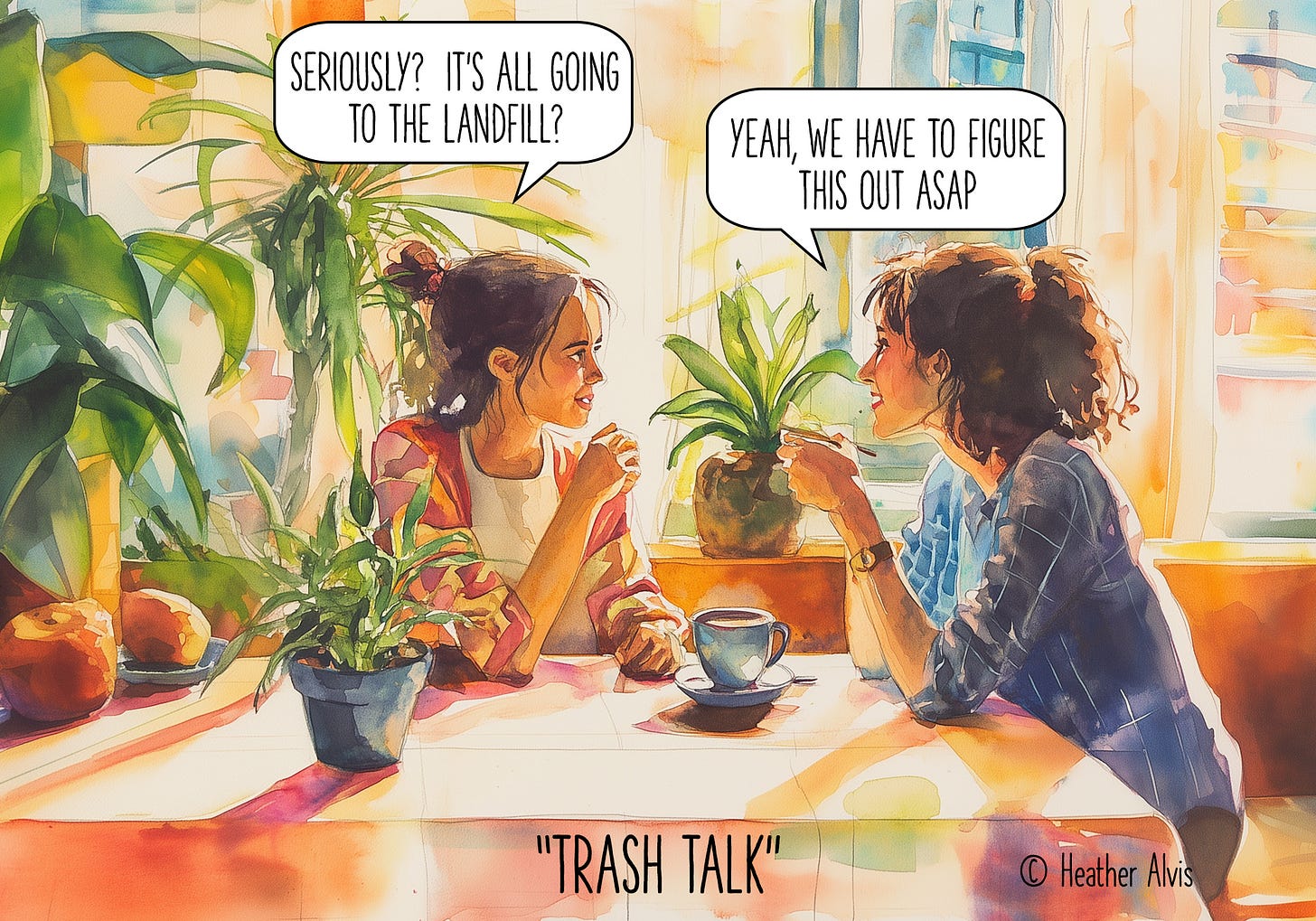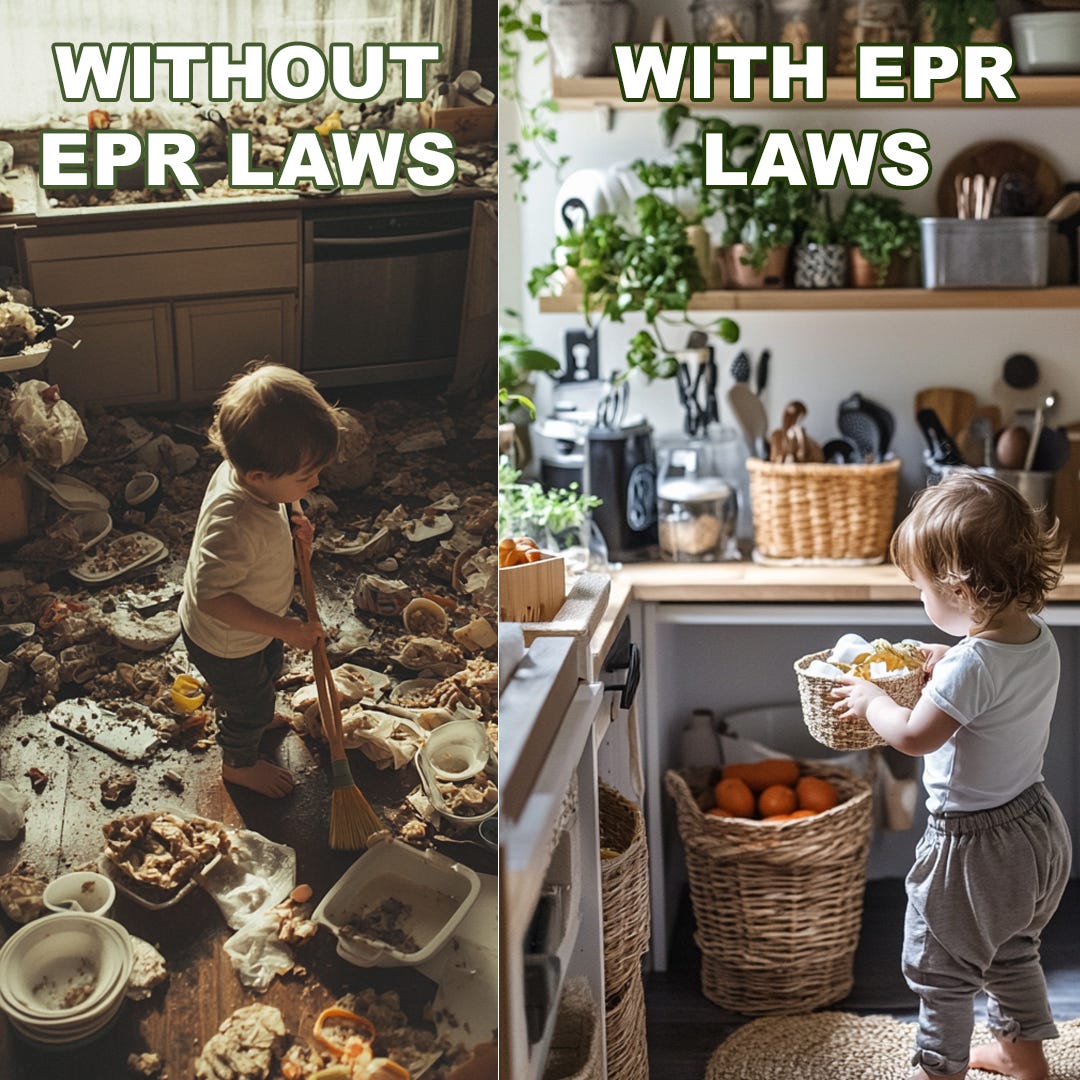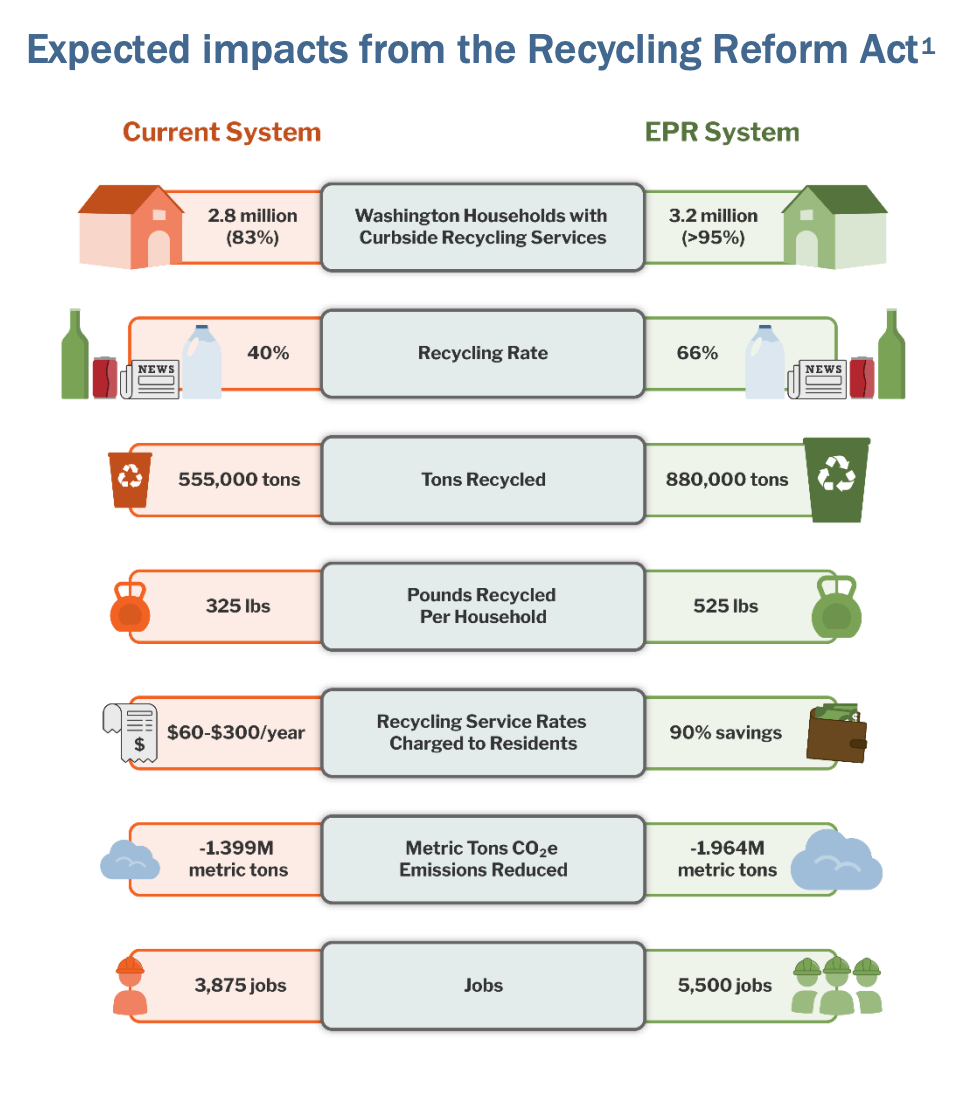How I Fell Into the World of EPR
Extended Producer Responsibility isn’t a household term, but it should be. Here’s why it matters, how I got pulled into it, and how it's reshaping waste policy in America.
You never know which connection will change everything.
A while back, someone invited me to speak to a college business class about my company, Electra. It was a casual Zoom event, the kind of thing you say yes to on a Tuesday and almost forget by Thursday.
But the other speaker turned out to be Jennifer Heaton-Jones, and that was the beginning of something.
Jennifer is the Executive Director of the Housatonic Resources Recovery Authority (HRRA), which manages waste across 14 towns in Western Connecticut. She and I hit it off immediately, bonding over things most people would rather not talk about, like tire waste, landfill cheating, and the staggering realities of single-use plastics.
It’s rare to meet someone who doesn’t flinch when I launch into a tirade about the hidden costs of packaging, and how everything is wrapped in plastic.
Jennifer didn’t flinch, she leaned in.
After our chat, she invited me to speak on a panel later that month and casually mentioned that Heidi Sanborn would be there too.
That’s when I took my first deep dive into EPR.
Heidi Sanborn is the Executive Director of the National Stewardship Action Council (NSAC) and a true legend in the world of waste policy. She’s one of those people you can’t help but learn from, even if you’re just in the same room.
Her presentations are packed with facts, side notes, and “but in fact”s. She’s as comfortable behind a legislative bench as she is on stage at national conferences. Heidi has spent over 30 years championing one big idea: producers should be responsible for what they put into the world.
That idea is called Extended Producer Responsibility, or EPR.
And it’s changing how we think about trash.
So, what is EPR?
EPR is a policy model that shifts the cost of waste management from local taxpayers and governments to the companies that actually make the products.
That might sound simple—but it’s a big deal.
Right now, when something breaks, empties, or expires, it usually ends up in the garbage. And when it does? You pay for that. Whether it’s through your garbage bill, your local taxes, or municipal waste contracts, the public foots the bill for all the things producers didn't plan for.
Landfills fill up.
Infrastructure decays.
Cleanup gets expensive.
EPR is about flipping that script.It says: if you make it, you (manufacturer) need a plan for what happens when your product is no longer useful.
That could mean building in recycling fees, funding collection programs, or rethinking how a product is made in the first place. EPR legislation is already in place in more states than you might think: California, Washington, Oregon, Connecticut, Texas, Nevada, and New York, to name a few.
And it’s expanding fast.
Who actually runs these programs?
In most cases, manufacturers hire third-party groups called Producer Responsibility Organizations, or PROs, to manage logistics, compliance, and collection. These are like shared utilities for producers, where they coordinate recycling drop-offs, track data, and make sure rules are followed.
But don’t be fooled: PROs are often funded by the same companies they’re supposed to regulate. Which means we, the public, need to pay attention.
A good PRO does the hard work of making circular systems real. A weak one waters down the rules, delays action, or creates token programs that technically comply with the law, without solving the problem.
Being pro-EPR also means being pro-accountability. We have to ask:
Who benefits? Who pays? Who’s watching?
Landmark Legislation in Motion
Right now, two major EPR bills are moving through the California legislature: SB 501 and SB 561. These bills aim to hold producers accountable for the safe disposal of household hazardous waste, including items like pesticides, pool chemicals, and vaping products, as well as expired emergency flares that pose risks to firefighters and the environment.
Both bills passed out of the Senate Judiciary Committee on April 22 and are now headed to the Senate Appropriations Committee. That next step matters—because it’s often where good legislation stalls or dies quietly.
If you want to support the passage of these bills, here are two quick actions:
✅ Sign here to support SB 501 (Household Hazardous Waste)
✅ Sign here to support SB 561 (Emergency Flare Safe Disposal)
These take 30 seconds, and your voice helps show that these issues matter to more than just policy insiders.
Why this matters now
If you’ve never heard of EPR before today, you’re not alone. It’s not exactly a trending hashtag. But it might be one of the most important tools we have to build a circular economy—and it’s gaining steam.
When you see EPR bills up for vote in your state, recognize the years (yes, years) of quiet coordination that got them there. These laws take collaboration, compromise, and an uncomfortable amount of grit. And they’re worth it.
Want to know what’s happening in your area? Check out the NSAC legislation tracker or visit the Product Stewardship Institute for updates.
Final thoughts
I didn’t set out to become an EPR advocate.
I just followed a trail of conversations, one Zoom room at a time, and found myself surrounded by people who care deeply about what we throw away.
And we’re not just talking anymore. In April, Washington State’s Legislature passed a groundbreaking EPR for Packaging bill, now awaiting Governor Ferguson’s signature. This bill is a major win for circularity and will:
Expand curbside recycling access to over 500,000 additional households, especially in rural and underserved areas
Create statewide recycling standards and multilingual public education, cutting confusion and contamination
Improve conditions for Washington’s recycling workforce, including incentives for fairer pay and safer working environments
These aren’t abstract wins. They’re real policy victories driven by people like Heidi Sanborn, Jennifer Heaton-Jones, Zero Waste Washington, RRS, and countless others working behind the scenes, often for years, to get this legislation through.
They show that the circular economy isn’t just a vision. It’s happening.
EPR may not be a household acronym yet.
But it should be.
Because when we hold producers responsible, we all benefit: lower public costs, less landfill waste, stronger supply chains, and a system that values the full life of the things we make.
Let’s keep building that system, one acronym, and one connection, at a time.






I just saw this recently released study that directly backs the climate/environmental impact costs to the emitters. If companies got penalized for their environmental damages, that could be a major game changer. https://www.nature.com/articles/s41586-025-08751-3